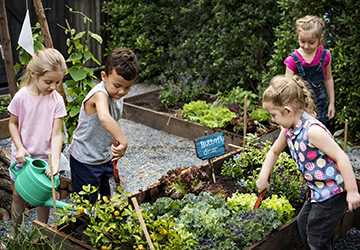How do you make your child more independent? It is always challenging to be a parent when the child becomes too dependent on the parent for even simple tasks.
When children are dependent, they are likely to suffer from low self-esteem. This may result in long-term consequences that affect their capacity to do well in different spheres of life.

Age-appropriate work enables the children to be independent and acquire skills in handling daily life activities.
This blog post will share practical solutions that help you choose your child's task depending on age. Prepare for your child to blossom and come out of their shell!
Let's get started!
The Benefits of Teaching Independence
Education of independence in children has numerous advantages. It helps them develop a sense of self-confidence and pride in their work.
The responsibilities allow the children to learn the importance of accountability. They know their actions and decisions affect their outcomes, enabling them to take responsibility.
When raising children, we need to start with basic activities and, as time goes on, advance to more complex ones together with them.
Practical Tasks for Building Independence at Every Age
Assigning children the right tasks when working on their independence is crucial. Here, we'll explain all these practices in detail. Read these practical tasks for Building Independence at every age.
● Toddlers (2-3 Years Old)
Little Helpers in the Making
This is an excellent age to interact with tasks performed in the child's presence. Allow the child to engage in minor tasks to maintain the child's desire to be helpful.
Force them to learn how to pack their toys after playing to appreciate neatness. To teach them responsibility, let them assist in arranging the items on the table using items that can not be easily broken, like cups or napkins.
For these tasks, make it a game or a challenge more often. Encourage them with cheers and sound words to encourage them and make them desire to learn more.
● Preschoolers (4-5 Years Old)
Mastering Self-Care and Decision-Making
Preschool-age children are more self-care-competent than those in earlier years of childhood. Assist the child in brushing their teeth, and as the child grows up, offer minimal assistance as they learn the process.

These activities also help enhance their fine motor skills as they learn to care for themselves properly.
Give your preschooler a choice between options often. For instance, say, "Wear this suit to the funeral," or "Take this letter to the post office." This helps them practice making decisions and boosts their confidence
● Early Elementary (6-8 Years Old)
Building Routines and Problem-Solving Skills
Early elementary school children can handle more complex tasks than previously expected. Telling them they must make their beds each morning teaches them to take responsibility for their room.
Engage them in packing lunch on their own; this helps the child learn to make good decisions and solve problems regarding portions and types of foods.
Describe these tasks in detail and be clear in your instructions. Be as tolerant as possible while they are learning. Praise their accomplishments and encourage them when they have made a mistake, explaining that it is okay to make mistakes but not to try.
● Preteens (9-12 Years Old)
Nurturing Responsibility and Time Management
Children can be given more responsibilities as they grow, especially in early adolescence. Assigning them the task of feeding, bathing, and walking a pet helps them develop a sense of compassion.
Let preteens help with household chores, such as vacuuming, dusting, or even folding clothes. Such tasks enable them to assist the family while managing their time as they attend school and engage in other activities.
Ensure that you state to the learners what is expected of them when undertaking each task and, when necessary, offer some direction.
Start Nurturing Independence Today!
Now that you know of several age-appropriate tasks that can help you promote independence in your children, it is time to implement them. Begin integrating these activities into the family's daily schedule and watch your children grow.
Remember that encouraging independence takes time and effort. Please enable your children to work hard and rejoice with them as they achieve the little milestones in their learning process.
Raising independence in your children means preparing them to be independent, responsible, and confident.
So take that first step today and see the excellent development and strength of the young ones!
Frequently Asked Questions
Q. How do I know if a task is too difficult for my child?
Ans: Remember the child's capacity and how helpless they are at this stage. The task is too difficult if the child needs help or gets easily frustrated. Break it into pieces and know that it may be necessary to discuss it.
Q. What if my child refuses to do their assigned tasks?
Ans: First, try to understand why they rejected you. Offer positive feedback, motivate, and attempt to modify the task to make it more interesting.
Q. How can I encourage my child to be more independent?
Ans: Motivate them. Give options, build their confidence, and tell them when they are doing well.







